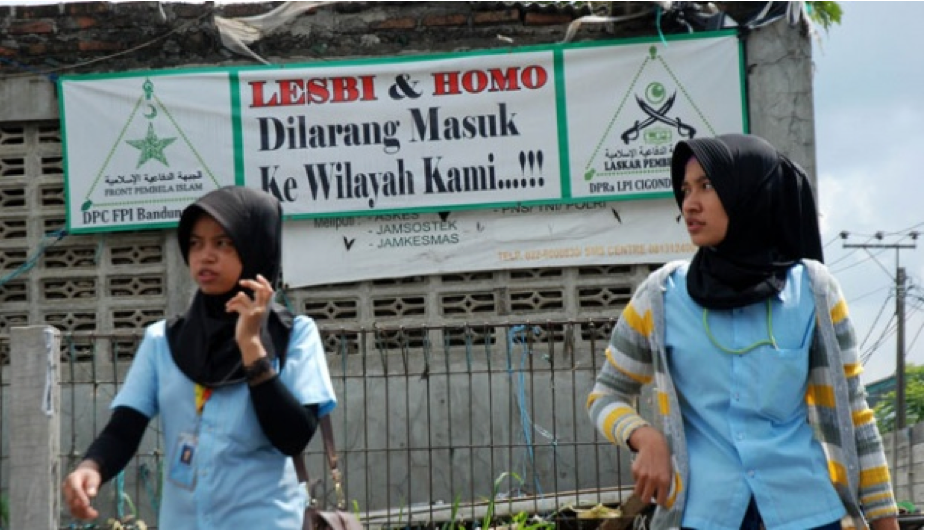Just hours after an incompetent attempt at terrorism shut central Jakarta down for about 20 minutes earlier this month, I wrote a commentary in the Financial Times saying that “Islamic State” (which, let’s remember, is neither) and similar rabid, back-to-the-7th-century fanatics had no traction in Indonesia because “Indonesia is a vibrant democracy and its citizens are proud of their diversity and tolerance”. (If the link to the FT doesn’t work for you, you can read the text in Word here).
The commentary refers to some work I’ve been doing with a colleague, Michael Buehler, analysing the spread of sharia-inspired local laws (peraturan daerah, or perda) across Indonesia. We find solid evidence that these perda are passed mostly for reasons of political self-interest. Either they bring in cash, or they create patronage opportunities, or politicians think that they are popular, and that they will help in re-election campaigns.
Interestingly, though, our analysis suggests that — SURPRISE — Indonesia’s political elite is out of touch with what most voters think and want. Local leaders who pass “morality” laws in their first term may make themselves popular with groups such as FPI, which then have a legal basis to go around smashing up those bars that don’t pay them protection money, but that does NOT translate into popularity with voters — they are much less likely to get re-elected compared with those who didn’t pass such laws in their first term. (Notes for nerds below.**) Interestingly, those who passed laws that effectively encourage Sunni (Wahabi?)-branded thugs to beat up on other sects did especially poorly in the provinces that have the strongest traditions of political Islam and the largest Moslem majorities.
And still, we get quite senior politicians thinking that appealing to intolerance is a populist move. The punch-bag of the week are gay men and women (and perhaps also transgenders, now inexorably grouped with the others under the daft acronym LGBT, though waria are socially, culturally and politically very differently positioned in Indonesian society compared with gays). First, the minister for research, technology, and higher education, Mohammad Nasir, said gays were not welcome on campus. Then the popular mayor of Bandung, Ridwan Kamil, got in on the act, in a very Indonesian way — support gay rights if you want, just don’t do it in public. (Here’s a useful summary of recent homophobic pronouncements by Indonesian officials from Human Rights Watch.) The Sunni-themed thugs in the FPI appear to have taken Ridwan’s comments as license to put up idiotic banners such as that pictured above and go house to house looking for same-sex-love. The FPI, Front Pembela Islam or Islamic Defenders’ Front, is one of several groups of Islamic-themed gangsters (pdf) who cloak their extortion rackets in the language of The Book. Guess what they found in the cheap boarding houses used by students in the university town of Bandung? Lots of young women sharing rooms!
FPI members are generally not very clever, and it may be that few of them have been to college far from home. But they are, after all, Indonesian. So they should know that in Indonesia, people of the same gender regularly bed down together — in some islands I’ve shared mattresses with three generations of women at once. And I can assure those shouty young men who wish to defend Indonesia’s morals that that does NOT make me a “lesbi”.
Stupidity on the part of gangsters is understandable. On the part of senior politicians it is less forgivable. There has been a bit of backtracking from several of the mouthiest politicians, including Nasir and Ridwan. But they, and all of their colleagues, appear to be very slow on the uptake. When will they learn that most Indonesian voters are way ahead of them in the desire to live and let live, otherwise known as tolerance?
**The data set was limited to the 254 local government heads who passed any sharia-inspired perda between 2001 and 2012 — 442 regulations altogether. These results compare the electoral fate of those who passed certain types of bylaws in their first term with those that did not. For those who care about these things, the results were statistically significant at the p<0.05 level.

